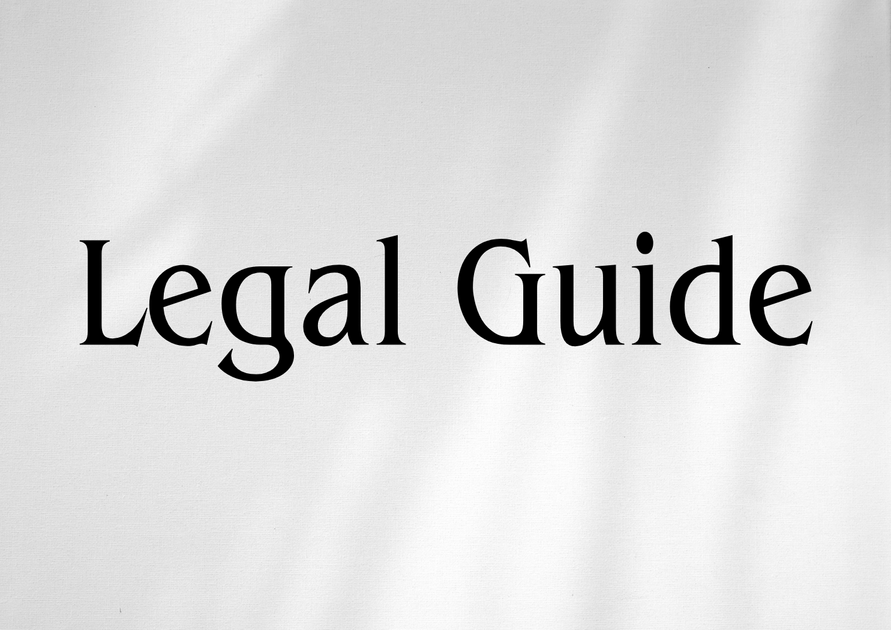Introduction: The Expanding Role of Arbitration and Enforcement in the UAE
Arbitration has become the dispute resolution mechanism of choice for many businesses operating in the United Arab Emirates (UAE), owing to its efficiency, confidentiality, and flexibility. With the continued development of the UAE as a regional and global business hub, ensuring that arbitral awards are not only rendered, but reliably enforced, is mission-critical for organizations, executives, and stakeholders. This article provides a comprehensive legal analysis of arbitral awards and their enforcement under recent UAE law, especially in the context of Federal Law No. 6 of 2018 on Arbitration and the latest 2025 statutory updates, giving practical guidance to navigate ongoing reforms.
The capacity to enforce arbitral awards—be they domestic or international—is fundamental for commercial certainty and risk management. Recent legal developments, including refinements to Federal Decree-Law No. 42 of 2022 (UAE Civil Procedures Code) and amendments to enforcement provisions, carry significant implications. For businesses, HR managers, and legal practitioners, understanding the mechanics of issuing, recognizing, and enforcing arbitral awards is indispensable. This article not only analyzes the analytical frameworks of the relevant UAE laws, but also offers actionable compliance insights tailored for the UAE landscape.
Table of Contents
- Arbitration in UAE Law: Framework and Evolution
- Issuance of Arbitral Awards: Legal Provisions and Procedures
- Recognition and Enforcement of Arbitral Awards in the UAE
- Domestic Versus International Arbitral Awards: Comparison
- Challenging and Setting Aside Arbitral Awards
- Legal Updates 2025: Key Changes in Arbitration and Enforcement
- Risks of Non-Compliance and Practical Compliance Strategies
- Case Studies and Practical Scenarios in the UAE
- Best Practices and Forward-Looking Perspectives
Arbitration in UAE Law: Framework and Evolution
Legal Architecture of Arbitration in the UAE
The UAE’s legal regime for arbitration is anchored in Federal Law No. 6 of 2018 on Arbitration (the UAE Arbitration Law), which draws heavily on the United Nations Commission on International Trade Law (UNCITRAL) Model Law. This law revolutionized the arbitration scene by providing a comprehensive framework for arbitral proceedings, including authority of tribunals, choice of law, and due process guarantees. The Arbitration Law applies to both domestic and international arbitrations conducted within the UAE, except in the Dubai International Financial Centre (DIFC) and Abu Dhabi Global Market (ADGM), which maintain their own arbitration laws aligned with international best practices.
Key Regulatory Bodies and Arbitration Centres
Notable UAE-based arbitration institutions include the Dubai International Arbitration Centre (DIAC), Abu Dhabi Commercial Conciliation and Arbitration Centre (ADCCAC), and the Sharjah International Commercial Arbitration Centre (Tahkeem). Both the DIFC and the ADGM have their own courts and rules governing arbitration, creating a pro-enforcement landscape that distinguishes the UAE regionally and globally.
Evolution and Reforms
Over the past decade, major legal reforms have enhanced arbitration’s effectiveness, notably recent updates in Federal Decree-Law No. 42 of 2022 (as amended in 2025). These legislative efforts reflect the UAE’s policy to foster an internationally credible arbitration regime conducive to investment and cross-border transactions.
Issuance of Arbitral Awards: Legal Provisions and Procedures
Requirements for Valid Arbitral Awards
For an arbitral award to be legally valid and enforceable in the UAE, it must fulfill strict requirements under Article 41 of the UAE Arbitration Law. Notably, the award must:
- Be in writing and signed by the arbitrators;
- Include a statement of reasons unless the parties agree otherwise or the law on which the award is based does not require it;
- State the date and seat of arbitration;
- Clearly identify the parties and summarize the substance of the dispute;
- Be notified to each party per required procedures.
For international arbitrations seated in the UAE, these formalities remain crucial. Additionally, Article 42 stipulates that the arbitral tribunal shall provide an original or certified copies of the award to each party, enhancing procedural certainty.
Timeframes and Deadlines
Article 42(2) of the Arbitration Law requires arbitral tribunals to render awards within the timeframe specified by the parties or, absent such specification, within six months from the first hearing. The timelines can be extended by agreement or tribunal decision. Failure to observe deadlines can risk the nullification or unenforceability of the award.
Consultancy Insights on Award Issuance
Careful attention to procedural regularity is essential. Common pitfalls for foreign parties include ambiguity over the place of arbitration, lack of proper signature, or incomplete notification to all parties. Proactively involving UAE-qualified legal counsel from the outset of the arbitral process reduces the risk of subsequent enforcement obstacles.
Recognition and Enforcement of Arbitral Awards in the UAE
The Legal Basis for Enforcement
The enforcement of arbitral awards in the UAE, whether domestic or foreign, is primarily governed by:
- Federal Law No. 6 of 2018 on Arbitration;
- Federal Decree-Law No. 42 of 2022 (Civil Procedures Code);
- The New York Convention on the Recognition and Enforcement of Foreign Arbitral Awards, to which the UAE acceded in 2006.
Enforcement Procedure: Step-by-Step Flow
The standard procedure for enforcement (under Article 55 of the Arbitration Law and Articles 222–224 of the Civil Procedures Code, as updated in 2025) involves:
- The award creditor files a petition for enforcement before the competent UAE Court (either onshore courts, or the DIFC/ADGM courts depending on the seat of arbitration and parties’ agreement).
- The Court examines the application on a summary basis, verifying compliance with formalities (e.g., award copy, arbitration agreement, Arabic translation if necessary).
- If requirements are met, the Court issues an order of enforcement, unless grounds for refusal exist under Article 53 of the Arbitration Law or the New York Convention.
- The order is enforceable as a court judgment, subject to a short window (15 days) for appeal.
| Step | Description |
|---|---|
| 1. File Application | Submit award and arbitration agreement to competent court |
| 2. Court Scrutiny | Court reviews documents, compliance, jurisdiction |
| 3. Enforcement Order | If compliant, enforcement order is issued |
| 4. Appeal | Limited grounds and short window to contest order |
New York Convention: International Enforcement
For foreign arbitral awards, the New York Convention (1958) streamlines recognition and enforcement in the UAE. The courts are prohibited from revisiting the merits of the dispute; their review is confined to limited procedural and public policy grounds, enhancing predictability for cross-border business transactions.
Practical Insights
Although the UAE courts have become increasingly pro-enforcement, technical deficiencies—such as failure to include an Arabic version of the award, or unclear evidence of notification to parties—may result in enforcement delays or rejections. Consulting legal counsel specializing in enforcement is essential for preempting procedural setbacks.
Domestic Versus International Arbitral Awards: Comparison
| Aspect | Domestic Awards | International Awards |
|---|---|---|
| Applicable Law | UAE Arbitration Law; Civil Procedures Code | UAE Arbitration Law (if seated in UAE); New York Convention (if foreign) |
| Enforcing Court | UAE onshore courts | UAE onshore courts or DIFC/ADGM courts; can be enforced abroad |
| Enforcement Criteria | Compliance with Arbitration Law; public policy | New York Convention standards; limited defenses |
| Appeal/Challenge | Article 54 grounds under Arbitration Law | Article 54; New York Convention ground |
| Language Requirements | Award must be in or translated to Arabic | Same; translation needed for enforcement |
Practical Considerations
For businesses with cross-border operations, it is vital to draft arbitration agreements that anticipate the seat of arbitration and contemplate enforcement pathways. Whenever possible, selecting seats such as DIFC or ADGM can facilitate swifter enforcement, leveraging those courts’ pro-arbitration approach and international recognition.
Challenging and Setting Aside Arbitral Awards
Grounds for Challenge in UAE Law
Under Article 53 of the UAE Arbitration Law, an application to annul or set aside an arbitral award must be filed within 30 days of party notification. Grounds for challenge include:
- Lack of a valid arbitration agreement;
- Breach of due process or right to defense;
- Excess of tribunal authority;
- Procedural irregularities affecting award outcome;
- Violation of UAE public policy.
Challenge Procedure and Judicial Discretion
The UAE courts exercise a limited and defined scope of review when hearing challenges, consistent with international best practice, but robust evidence of procedural or substantive errors is required. Notably, the law (Article 54) clarifies that challenge proceedings do not automatically suspend enforcement of the award unless otherwise ordered by the court, thus mitigating tactical delays by recalcitrant parties.
Consultancy Guidance on Avoiding Annulment Risks
To minimize the risk of challenges, parties should ensure their arbitration agreements are explicit, meticulously observe all procedural steps, and always address issues of arbitrability, notification, and representation with the support of seasoned arbitration counsel.
Legal Updates 2025: Key Changes in Arbitration and Enforcement
Summary of 2025 Updates
The recently enacted amendments to the UAE Arbitration Law and Civil Procedures Code (Federal Decree-Law No. 42 of 2022, as revised in 2025) have addressed longstanding ambiguities and streamlined enforcement, reflecting a commitment to international alignment and efficiency:
- Simplified Enforcement Proceedings: The 2025 updates reduce formality and expedite timelines for enforcement petitions, empowering competent courts to issue orders more swiftly.
- Clarified Public Policy Exception: The definition of ‘public policy’ has been refined, narrowing the grounds on which enforcement can be refused, consistent with global arbitral norms.
- Enhanced Recognition of Institutional Awards: Recognizes awards rendered under new institutional rules (DIAC 2022, ICC, etc.) and stipulates expedited mechanisms.
- Mandatory Digital Filing: Introduction of digital submission requirements for enforcement documents to UAE courts, increasing transparency and efficiency.
- Expanded Interim Measures: Broader court support for interim relief, aligning arbitral tribunal powers with urgent commercial contexts.
Comparison Table: Key Amendments 2021–2025
| Aspect | Before (2021) | After (2025) |
|---|---|---|
| Enforcement Timeline | Uncertain duration; frequent procedural delays | 30-45 days average; expedited judicial process |
| Digital Filing | Physical submission only | Mandatory online/digital submission |
| Public Policy Defense | Broad, loosely-defined scope | Narrow, specifically codified grounds |
| Recognition of Institutional Awards | Occasional disputes over applicability | Full, uniform recognition of major institutional rules |
Practical Effects of the 2025 Amendments
These updates ensure faster dispute resolution, reduced scope for tactical challenges, and increased certainty for parties seeking to leverage arbitration. Importantly, they place the UAE among global leaders in arbitration reform, making it a more compelling forum for international contracts and ventures. Businesses must update internal policies and contract templates to reflect the streamlined enforcement mechanisms and digital requirements.
Risks of Non-Compliance and Practical Compliance Strategies
Potential Risks and Liabilities
Organizations that fail to adhere to updated arbitral award issuance and enforcement procedures expose themselves to significant risks:
- Inability to Enforce Awards: Technical non-compliance (e.g. improper notification, missing signatures, failure to file through digital channels) can render an award unenforceable.
- Delays and Increased Costs: Non-compliance leads to protracted litigation, increased costs, and lost commercial opportunities.
- Adverse Publicity: High-profile enforcement failures can harm reputation and stakeholder confidence.
- Legal Sanctions: Repeated procedural breaches could attract judicial sanctions or negative precedents impacting future arbitrations.
Compliance Strategies: Legal Consultancy Checklist
| Action Item | Details |
|---|---|
| Draft Robust Arbitration Clauses | Ensure explicit seat, language, and institutional rules are specified in all contracts |
| Engage Local Counsel Early | Involve UAE-qualified legal advisers at contract and dispute stages |
| Comply with Documentation Standards | Observe signature, language, and notification requirements under UAE law |
| Monitor Legal Updates | Track annual legislative amendments and update internal procedures |
| Leverage Digital Submissions | Prepare enforcement petitions in digital formats as now mandatory |
Case Studies and Practical Scenarios in the UAE
Case Study 1: Successful Cross-border Award Enforcement
Scenario: A European supplier wins an arbitral award seated in Paris against a UAE-based distributor under ICC rules. Relying on the New York Convention, the supplier files for enforcement before the Dubai courts. The award, fully in compliance with formal requirements and accompanied by Arabic translation, is recognized and enforced within 60 days as per the 2025 expedited process.
Key Takeaway: Anticipating enforcement hurdles in advance—particularly correct document translation and timely digital filing—ensures a swift, cost-effective outcome.
Case Study 2: Procedural Pitfalls and Unenforceability
Scenario: An SME in Sharjah prevails in a domestic arbitration but omits to sign every page of the award and fails to serve notice of the award in accordance with the arbitration agreement. The award debtor challenges enforcement, citing violation of Article 41 requirements, and successfully delays enforcement.
Key Takeaway: Even minor breaches of procedural requirements can result in significant delays, costs, and reputational risks, highlighting the need for diligent legal oversight throughout the process.
Hypothetical Example: Digital Filing Compliance
Scenario: In 2025, a multinational files an online enforcement petition via the UAE’s new digital court portal. The system initially rejects the filing due to an outdated document format, delaying enforcement by two weeks. Prompt consultation with local counsel ensures proper resubmission, validating the importance of up-to-date procedural awareness.
Best Practices and Forward-Looking Perspectives
Adopting a Proactive Approach to Arbitration Compliance
- Future-Proof Arbitration Clauses: Use model clauses issued by major arbitration institutions and regularly review them to align with UAE law updates.
- Integrated Compliance Training: Provide regular internal training for legal and contracting teams on new enforcement requirements and digital processes.
- Strategic Forum Selection: Consider the benefits of DIFC or ADGM arbitration, where post-award enforcement is notably efficient and internationally recognized.
- Leverage Technology: Embrace digital submission and case management portals now mandated for enforcement, reducing administrative bottlenecks.
The Way Forward: Arbitration as the Cornerstone of UAE’s Business Environment
The UAE’s evolving legal landscape for arbitration and enforcement continues to position it as a regional and global leader in dispute resolution. With robust reforms cemented through 2025, both local and international businesses can operate with heightened confidence in the certainty, efficiency, and international standing of UAE arbitral awards. However, legal compliance in this dynamic environment requires vigilance, expert guidance, and the strategic deployment of resources to anticipate and preempt procedural hurdles. Proactive clients who invest in professional legal consultancy will be best placed to capitalize on the UAE’s arbitration-friendly ecosystem, ensuring sustainable commercial success even as the regulatory framework evolves.
Conclusion: Navigating Change with Confidence
Arbitral awards and their enforcement remain foundational to commercial stability and legal certainty in the UAE. The 2025 legal updates, by streamlining enforcement mechanisms, narrowing non-enforcement defenses, and fostering digitalization, mark a significant leap forward. Businesses, HR managers, and legal practitioners should update their compliance protocols, review arbitration clauses, and seek expert legal advisory to leverage the opportunities and mitigate the risks presented by the new regime. Staying informed through trusted sources—UAE Ministry of Justice, government portals, and official gazettes—and engaging local legal counsel will be key to navigating arbitration’s future in the UAE confidently and effectively.



